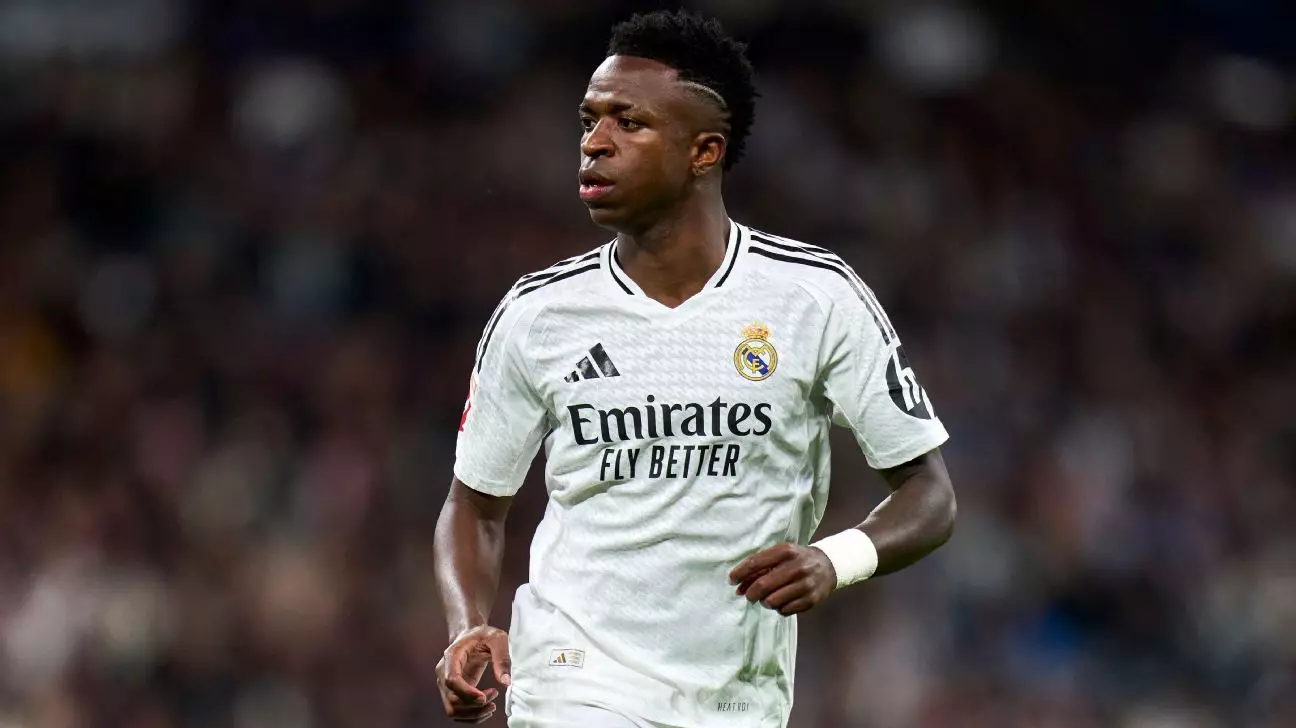Addressing Youthful Misconduct: A Case Study in Racial Abuse in Football
As someone who has spent countless weekends cheering on my favorite football team, I understand the love and passion this sport ignites. However, recent events have cast a shadow over the beautiful game that we cherish so deeply. During a Spanish football match, a young fan directed racial abuse at Brazilian forward Vinícius Júnior. This incident, which took place on February 18 during a match between Real Madrid and Rayo Vallecano, has sparked an important conversation about racism in football and society.
The ugliness of such behavior is hard to reconcile with the joy that football brings to millions of fans worldwide. When discrimination rears its head during a public event like a football match, it forces us to confront uncomfortable truths about the culture that allows these actions to occur. This situation has stirred emotions not just among fans, but also within communities affected by such issues. As we navigate this landscape, it’s vital to explore how we can collectively address and rectify these wrongdoings.
Key Takeaways
- The incident highlights the persistent issue of racism in sports.
- Accountability measures were taken against the minor involved.
- Legal actions are essential in combating racial abuse.
Acknowledging the Incident
The racial abuse directed at Vinícius Júnior by a minor was promptly addressed by LaLiga. This swift action underscores the necessity for accountability, especially when young individuals are involved. The minor faced several consequences: issuing a formal apology to Vinícius, participating in 40 hours of socio-educational activities, and receiving a one-year ban from attending any matches in official competitions. Additionally, there was a financial penalty imposed by the State Commission against Violence, Racism, Xenophobia, and Intolerance in Sport.
This approach reflects a commitment to acknowledging and addressing unacceptable behavior while emphasizing education’s role in shaping understanding. It’s crucial for society to recognize that punitive measures alone aren’t sufficient. Instead, educational initiatives must run parallel to punishment to foster empathy and respect among young people. By doing so, we can hope to reduce the recurrence of such incidents and promote lasting change.
Real Madrid’s Commitment
Real Madrid’s zero-tolerance policy on racism was evident in their response to this incident. The club underscored its dedication to combating social issues by highlighting ongoing legal proceedings related to racial abuse. In recent months, legal actions have become an increasingly effective response mechanism within the sport. Notably, three Valencia fans were imprisoned for their racist remarks aimed at Vinícius Júnior, setting a precedent for how seriously these matters are being taken.
This legal progress represents a promising shift in public stance against racial abuse in Spain. The collaboration between LaLiga and the Royal Spanish Football Federation (RFEF) showcases a united front against racism. Yet, it also highlights the ongoing need for systematic changes within sports institutions and beyond. These efforts are vital in creating an environment where all players can thrive without fear of discrimination.
Vinícius Júnior’s Advocacy
Vinícius Júnior’s openness about his experiences with racism brings attention to the personal impact of such discrimination. His willingness to share his story underscores the emotional toll these encounters take on individuals targeted by abuse. Through his advocacy for change, Vinícius is pushing for both personal justice and broader societal reform regarding how racial abuse is addressed within football and beyond.
His stance serves as an important reminder of the resilience needed to fight against prejudice. It emphasizes that racial abuse does not occur in isolation but requires collective action across society—from governing bodies to grassroots movements—to dismantle structures enabling such behaviors. By raising awareness and promoting education alongside accountability, we can hope for progress toward an inclusive sporting environment where talent shines free from hate’s shadow.
Final Thoughts
The unfortunate incident involving Vinícius Júnior highlights significant issues that extend beyond football pitches into wider societal contexts. It serves as a call-to-action for everyone involved in the sport—from fans and players to clubs and governing bodies—to actively participate in eradicating racism from every level of play. Through awareness campaigns, educational programs targeting young audiences, stringent legal measures against offenders, and fostering inclusive communities around teams globally—change is possible.
While challenges remain formidable given historical prejudices persisting within sports culture worldwide; there lies hope through collective effort aimed at transforming attitudes towards race relations both on-field off-field alike! With continued dialogue surrounding these topics coupled alongside tangible initiatives aimed addressing them head-on—we may yet see day when beautiful game truly lives up its name devoid any discriminatory shadows lurking beneath surface!
racial abuse
football misconduct
youth accountability
sports ethics
Vinícius Júnior


Leave a Reply